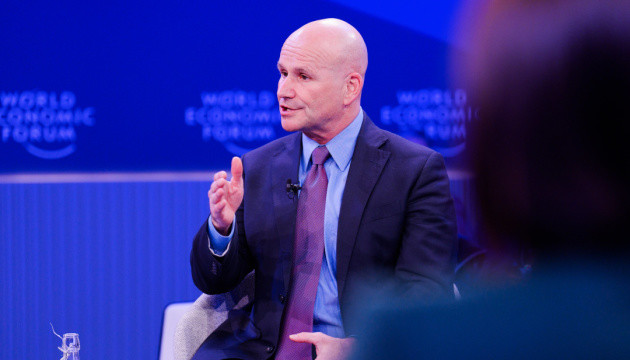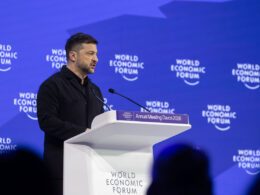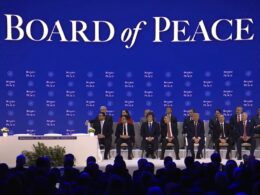Russia's hostile actions and statements, now almost routine, clearly indicate that Russia's ambitions extend beyond its aggression against Ukraine and present a real threat to NATO allies, General Christopher Cavoli, NATO’s Supreme Allied Commander in Europe, said at the World Economic Forum in Davos, according to Ukrinform.
The World Economic Forum (WEF) opened in Davos, Switzerland, on 20 January. This year, the event focuses on “Cooperation in the Age of Intelligence” discussions. The forum is expected to host nearly 3,000 participants from over 130 countries, including 60 heads of state and government.
At the event, Cavoli emphasized that these ambitions are pushing NATO members to adapt and bolster their defense capabilities. He pointed out that threats against other nations, including NATO allies, have become routine for Russia, stressing the importance of taking physical threats seriously.
He also highlighted another significant concern: Russia’s announced plans, including a decision to increase its military by one-third in response to its war in Ukraine. Additionally, Russia is expanding its military presence along NATO’s borders, particularly in northeastern Europe, threatening Finland and the Baltic states.
The general also noted that Russia is conducting sabotage and other hybrid, destabilizing actions across Europe.
He referenced President Volodymyr Zelensky’s speech in Davos, in which he pointed out that the Russian forces that invaded Ukraine in 2022 numbered 200,000, but today, that number has grown to 600,000. Despite suffering massive losses, Russia’s military continues to recover and expand. Cavoli stressed that these developments should be considered in a broader, systemic context.
When asked about NATO’s readiness to address these threats, Cavoli assured that the Alliance’s situation is better than it has been in many years. NATO has undergone structural changes, which were endorsed by heads of states and governments. Allies now have detailed defense plans for the coming decades, enabling them to allocate necessary resources for collective defense.
Read also:
- Europe must strengthen defense policy, Zelenskyy urges at Davos forum
- EU’s Kallas warns against rushing Ukraine-Russia negotiations amid Trump’s push for talks
- No current prospects for peace talks between Ukraine and Russia, says Zelenskyy’s adviser
- Ukrainian FM Sybiha says maximum pressure must precede peace talks with Russia





